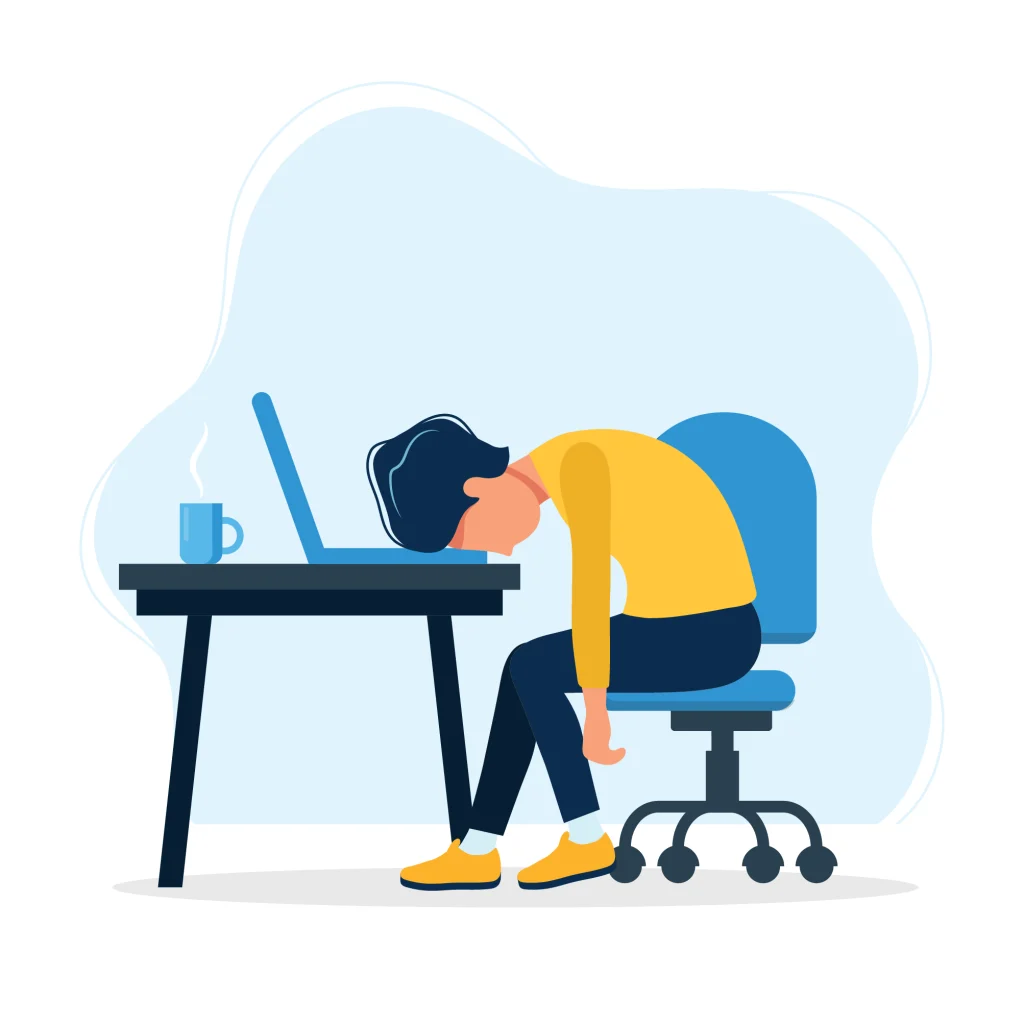Narcolepsy is a chronic sleep disorder that affects the brain’s ability to control sleep-wake cycles. People with narcolepsy often experience excessive daytime sleepiness and may suddenly fall asleep at inappropriate times, even during activities like talking, eating, or driving. This condition can seriously impact daily life, work, and safety.

Causes:
Narcolepsy is mainly caused by a deficiency of hypocretin (also called orexin), a neurotransmitter produced by specialized nerve cells in the hypothalamus that helps regulate wakefulness and REM sleep. In people with narcolepsy, these hypocretin-producing cells are significantly reduced or destroyed.
The exact reason why these cells are lost is not fully clear, but research suggests several contributing factors:
- Autoimmune Reaction:
Most evidence points to narcolepsy being an autoimmune disorder, where the body’s immune system mistakenly attacks and destroys the hypocretin-producing neurons. Certain genes, especially those related to the immune system like HLA-DQB1*06:02, increase susceptibility to this autoimmune response. - Genetic Factors:
While narcolepsy is not directly inherited in a simple pattern, genetics play a role in increasing risk. Some people have a family history of narcolepsy or related sleep disorders, and specific gene variants have been linked to the condition. - Environmental Triggers:
Certain infections (like streptococcal infections or the H1N1 influenza virus), physical trauma, stress, or other environmental factors may trigger the autoimmune attack in people who are genetically predisposed. - Brain Injuries or Tumors:
In rare cases, damage to the hypothalamus caused by head trauma, tumors, or other neurological conditions can lead to narcolepsy by directly affecting the hypocretin-producing neurons.

Symptoms of Narcolepsy :
ChatGPT a dit :
Narcolepsy is characterized by several key symptoms that affect sleep and wakefulness. The most common symptom is excessive daytime sleepiness, where individuals feel overwhelming tiredness and may suddenly fall asleep during the day, even in the middle of activities. Many people with narcolepsy also experience cataplexy, which is a sudden, temporary loss of muscle control triggered by strong emotions like laughter or surprise. Other symptoms include sleep paralysis, where a person is unable to move or speak briefly when falling asleep or waking up, and vivid hallucinations that can occur during these transitions between sleep and wakefulness. Additionally, people with narcolepsy often have disrupted nighttime sleep, waking frequently throughout the night despite feeling very sleepy during the day. These symptoms together can significantly impact daily life, making diagnosis and management important.
- Excessive daytime sleepiness (EDS): Persistent tiredness and sudden sleep attacks during the day
- Cataplexy: Sudden loss of muscle control triggered by strong emotions (like laughter or surprise)
- Sleep paralysis: Temporary inability to move or speak when falling asleep or waking up
- Hallucinations: Vivid dream-like experiences during sleep or wake transitions
- Disrupted nighttime sleep: Frequent awakenings during the night
Narcolepsy soutions :
While there is no cure for narcolepsy, its symptoms can be effectively managed with a combination of medications, lifestyle changes, and sleep management strategies. Stimulant medications, such as modafinil or amphetamine-based drugs, are commonly prescribed to help reduce excessive daytime sleepiness and improve alertness. For symptoms like cataplexy, sleep paralysis, and hallucinations, doctors may recommend antidepressants or sodium oxybate, which helps regulate sleep cycles. In addition to medication, lifestyle changes are essential. These include sticking to a consistent sleep schedule, taking short scheduled naps during the day, avoiding caffeine or alcohol close to bedtime, and practicing good sleep hygiene. Regular exercise and stress reduction can also help improve overall sleep quality. With the right treatment plan, many people with narcolepsy can lead productive and fulfilling lives.
Medications
- Stimulants (e.g., Modafinil, Armodafinil, Amphetamines) – to reduce excessive daytime sleepiness
- Sodium oxybate – helps with both daytime sleepiness and cataplexy
- Antidepressants (SSRIs, SNRIs, or tricyclics) – used to treat cataplexy, hallucinations, and sleep paralysis
Lifestyle and Behavioral Strategies
- Maintain a regular sleep schedule, even on weekends
- Take scheduled short naps during the day to reduce sleep attacks
- Practice good sleep hygiene (quiet, dark room; no screens before bed)
- Avoid heavy meals, caffeine, and alcohol close to bedtime
- Exercise regularly to improve sleep quality
Other Support
- Counseling or support groups for emotional support and coping strategies
- Education for family, teachers, or employers to better understand and support the condition
- Medical ID or alert – helpful in case of sudden sleep episodes in public
